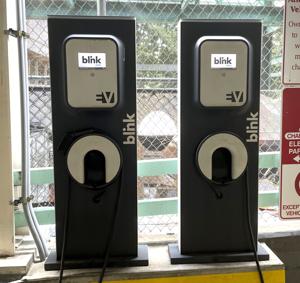Murphy sets 80% greenhouse gas reduction target, but groups question the cost

(The Center Square) – Gov. Phil Murphy has signed an executive order to establish a new interim greenhouse gas reduction target for the state, but some associations are questioning the cost to New Jerseyans.
Murphy has set a target of achieving an 80% “reduction in greenhouse gas emissions by 2050.” Executive Order No. 274, which the governor signed last week, sets an interim target of 50% “below 2006 levels by 2030.”
Murphy also announced $13.7 million for electric buses and trucks to reduce emissions and improve air quality in “overburdened communities” and $20 million to expand the New Jersey Zero Emission Incentive Program (NJZIP) to the Jersey Shore area.
“We must meet the devastating impacts of global warming and climate change with bold intentional action,” Murphy said in an announcement.
In a statement, New Jersey Business & Industry Association (NJBIA) Vice President of Government Affairs Ray Cantor said the Murphy administration should “work toward more pragmatic and realistic policies to reduce carbon rather than the unattainable, while also providing information to New Jersey ratepayers on what such plans are actually going to cost.
“New Jersey’s energy goals should instead consider realistic policies that reduce carbon while also assuring affordable and reliable energy for all our citizens and businesses,” Cantor said. “When you consider that New Jersey’s greenhouse gas reduction target is currently 20% of 2006 levels – requiring 15 years to get there, primarily through the state’s energy transition from coal to natural gas – it’s simply not feasible to get to 50% by the year 2030 without jeopardizing energy reliability or greatly impacting costs for all New Jerseyans.”
Murphy unveiled the state’s Energy Master Plan in January 2020, aiming to put the state on a track to use 100% clean energy by 2050. Since its unveiling, groups have questioned how much it would cost to implement, such as a provision to convert homes to use electric heat.
“Studies have shown that the cost for New Jersey homeowners to convert their homes to electric heat through the use of heat pumps will cost $20,000 or more,” Jeanette Hoffman, spokeswoman for SmartHeatNJ, an advocacy group backed by the Fuel Merchants Association of New Jersey, said in a statement after Murphy signed the latest executive order. “When asked about the extraordinary cost this mandate would have on New Jersey families, Governor Murphy has continually denied the public a straight answer.”
Murphy says the state will leverage proceeds from the Regional Greenhouse Gas Initiative (RGGI) to help cover the cost. While the governor indicated the state has received carbon credits totaling $170 million from RGGI, Hoffman noted that at $20,000 per home, that $170 million only covers 8,500 homes in a state with 3.2 million housing units.
“Now the Administration is fast-tracking their clean energy mandates by 20 years, with no clear plan on how consumers or businesses will pay,” Hoffman added. “…Clearly, New Jersey homeowners – especially those in working class neighborhoods and communities of color – will be footing yet another enormous bill.”
Disclaimer: This content is distributed by The Center Square
